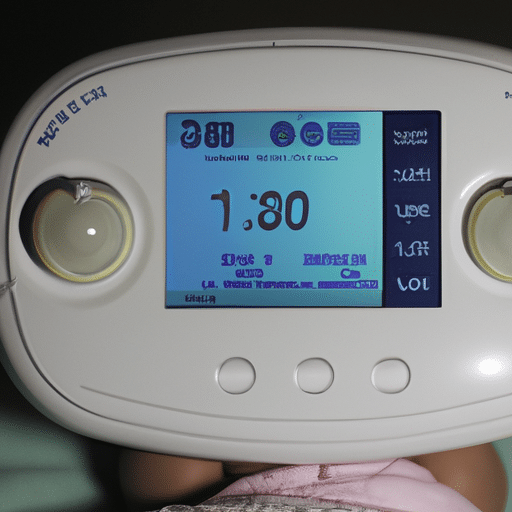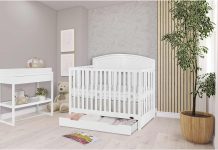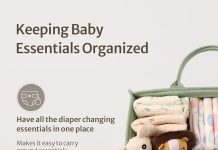We understand that being a new parent can be overwhelming, filled with countless questions and uncertainties. One question that often arises is, “can I leave my baby for 5 minutes?” As caring and responsible individuals, it is only natural to worry about the well-being of our precious little ones. In this article, we aim to address this common concern and provide you with some guidance on when and how it might be safe to take a short break while ensuring your baby remains safe and secure.
Review contents
The Importance of Supervision
Ensuring Safety
As parents, it is our responsibility to ensure the safety and well-being of our babies. One critical aspect of this is constant supervision. Babies are curious and full of energy, but they lack the awareness and understanding of potential dangers in their surroundings. By providing close supervision, we can create a safe environment and prevent accidents from occurring.
Preventing Accidents
Accidents can happen in the blink of an eye, especially when it comes to babies. They can quickly find themselves in hazardous situations, such as falling down the stairs, getting their fingers caught in drawers, or even accessing dangerous objects like cleaning supplies. By actively supervising our babies, we can anticipate their actions and intervene before accidents occur, ensuring their safety and well-being.
Physical and Emotional Needs of Babies
Dependency on Caregivers
Babies rely heavily on their caregivers for their physical and emotional needs. From feeding and changing diapers to providing comfort and affection, our constant presence and attentive care are vital for their healthy development. By being physically present and responsive to their needs, we establish a nurturing and loving bond that enhances their overall well-being.
Attachment and Bonding
Supervision plays a significant role in fostering attachment and bonding between a baby and their caregivers. Through close interactions, eye contact, and responsive caregiving, we build trust and security in our babies. This sense of attachment helps them develop a healthy emotional foundation and promotes positive social and cognitive development in the long run.
Potential Risks of Leaving a Baby Unattended
Accidental Injuries
Leaving a baby unattended even for a short period can lead to accidental injuries. Babies are naturally curious and eager to explore their environment. They might crawl, roll, or reach for objects that could pose a risk. Without supervision, they may find themselves in dangerous situations, such as falling off furniture, bumping their heads, or even ingesting harmful substances. By always supervising our babies, we can minimize the risks of these accidents occurring.
Choking Hazards
One of the primary concerns when leaving a baby unattended is the risk of choking. Babies tend to put everything in their mouths as part of their exploration and teething process. Small objects, toys, or even bits of food can pose a choking hazard if they are left unattended during this crucial stage of development. By being present and vigilant, we can quickly respond to any potential choking incidents and ensure our baby’s safety.
Suffocation Risks
Leaving a baby unattended also increases the risk of suffocation. Whether it’s loose bedding, pillows, or even stuffed animals in their sleeping area, these objects can accidentally cover the baby’s face and impede their breathing. Additionally, babies can roll onto their stomachs or get tangled in blankets, increasing the risk of suffocation. By remaining vigilant and providing constant supervision, we can prevent these suffocation risks and create a safe sleeping environment for our baby.
Age-Appropriate Independence
Developmental Milestones
As our babies grow, they naturally seek to become more independent. Developmental milestones, such as crawling, pulling up, and eventually walking, mark their increasing desire to explore their surroundings on their own. While it is essential to support their independence, it is equally vital to ensure their safety during this process. By supervising them closely and providing a secure environment, we can allow them to explore and develop their independence at a pace that is suitable for their stage of development.
Building Self-Reliance
Supervision goes hand in hand with building self-reliance in our babies. By providing a safe and supervised environment, we give our babies the confidence to explore, knowing that they have a secure base to return to if they encounter any challenges or potential dangers. This balance of supervision and independence allows our babies to develop a sense of self-reliance, which will serve them well as they continue to grow and explore the world around them.
Alternatives to Leaving a Baby Unattended
Use of Baby Monitors
When circumstances require us to be away momentarily, baby monitors can be a helpful tool to maintain supervision. With advances in technology, modern baby monitors allow us to keep a close eye and ear on our babies, even when we are not in the same room. These monitors provide reassurance and peace of mind by allowing us to monitor our baby’s movements and sounds, ensuring their safety even when we are not physically present.
Creating a Safe Environment
Another alternative to leaving a baby unattended is to create a safe environment in our homes. By baby-proofing our living spaces, we can minimize the risks and hazards that our babies may encounter. Securing furniture, covering electrical outlets, and removing small objects and choking hazards are just a few steps we can take to create a safe and supervised environment. This proactive approach reduces the need for constant supervision, offering us the flexibility to attend to other tasks while ensuring our baby’s safety.
Considerations for Parents
Assessing the Situation
As parents, we must continuously assess the situation and make informed decisions regarding supervision. Factors such as our baby’s age, developmental stage, and temperament play a role in determining the level of supervision required. It is important to consider our baby’s individual needs and abilities when deciding whether it is appropriate to leave them unattended for a short period. By carefully assessing the situation, we can ensure that our baby’s safety remains the top priority.
Seeking Support
Parenting can be challenging, and there may be instances where we need assistance or support. Whether it is help from a partner, a trusted family member, or a professional caregiver, reaching out for support can provide valuable relief and peace of mind. By building a support network and delegating responsibilities when necessary, we can balance the need for supervision with our own well-being.
How to Safely Leave a Baby for Short Periods
Preparing the Environment
When leaving a baby for short periods, it is crucial to prepare the environment to ensure their safety and well-being. This includes baby-proofing the area by removing hazards and ensuring that the surroundings are child-friendly. Additionally, ensuring that the baby is in a secure, safe space, such as a crib or playpen, can provide additional peace of mind when momentarily leaving the room. By taking these precautions, we can minimize potential risks and create a supervised environment even when temporarily absent.
Informing Caregivers
If another caregiver, such as a family member or nanny, is tasked with supervising our baby, clear communication becomes essential. Providing detailed instructions about the baby’s routine, preferences, and any specific safety concerns ensures that the caregiver can provide appropriate supervision. Open dialogue and clear communication between caregivers can help maintain consistency and ensure that our baby’s needs are met even when we are not present.
Common Concerns and Misconceptions
Separation Anxiety
Some parents worry about leaving their baby due to separation anxiety. It is natural for babies to experience separation anxiety, especially during certain developmental stages. However, separation anxiety can be managed by gradually introducing short periods of separation and ensuring that the baby feels secure and comforted. By maintaining consistent and loving caregiving practices, we can help ease separation anxiety and ensure a smooth transition when leaving our babies temporarily.
Guilt and Judgment
Leaving a baby unattended, even for a short period, can sometimes lead to feelings of guilt and judgment from others. It is important to remember that taking care of ourselves and attending to our own needs is crucial for our overall well-being as parents. By understanding that briefly leaving our babies under appropriate supervision is a normal part of parenting, we can overcome these feelings and make choices that prioritize the safety and happiness of our families.
The Role of Communication
Open Dialogue with Partners
When it comes to supervision and leaving a baby, open dialogue with our partners is key. By discussing and aligning our views on supervision and safety, we can ensure consistency and reduce any potential conflicts or misunderstandings. Open communication allows us to create a unified approach to supervision, ensuring that our baby’s safety remains a shared responsibility.
Discussing Arrangements with Caregivers
When enlisting the help of caregivers, it is crucial to have frank and informative discussions about supervision expectations and safety measures. Sharing information about our baby’s routine, potential hazards, and our specific concerns allows caregivers to provide appropriate and consistent supervision. Ongoing communication with caregivers enables us to address any questions or issues that may arise while maintaining a safe and supervised environment for our baby.
Conclusion
Finding a balance between supervision and allowing age-appropriate independence is essential for the healthy development and safety of our babies. Supervision plays a crucial role in ensuring the well-being of our babies and preventing accidents. By understanding the physical and emotional needs of our babies, recognizing the potential risks of leaving them unattended, and exploring alternatives to constant supervision, we can create a safe and nurturing environment for their growth. Open communication with partners and caregivers, along with assessing each situation individually, allows us to make informed decisions and find the right balance between supervision and independence. As parents, it is our responsibility to prioritize our baby’s safety while also considering our own well-being and individual circumstances. By maintaining both supervision and independence, we can provide the foundation for our baby’s growth and development while finding the harmony that works best for our families.






























